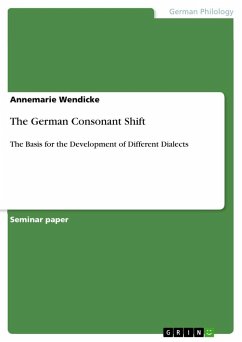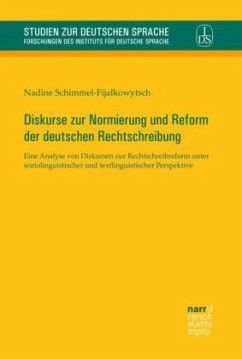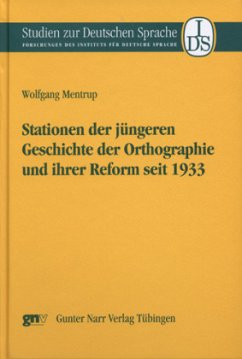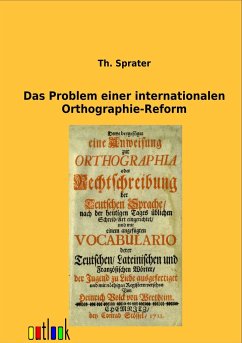
The German Spelling Reform
'The "Reform der deutschen Rechtschreibung" has proved to be far more of a curse than a blessing.'

PAYBACK Punkte
0 °P sammeln!
Essay from the year 2012 in the subject German Studies - Linguistics, University of Birmingham, course: BA Modern Languages, language: English, abstract: The German spelling reform, implemented in 1996, was meant to improve certain aspects of the German language in order to make the rules clearer and the language as a whole easier to learn. However, the agreement also wanted to minimise complication for native speakers who were used to the original rules. Already the 20th century had seen several attempts to adjust German orthography; therefore it was obviously a significant problem. The origi...
Essay from the year 2012 in the subject German Studies - Linguistics, University of Birmingham, course: BA Modern Languages, language: English, abstract: The German spelling reform, implemented in 1996, was meant to improve certain aspects of the German language in order to make the rules clearer and the language as a whole easier to learn. However, the agreement also wanted to minimise complication for native speakers who were used to the original rules. Already the 20th century had seen several attempts to adjust German orthography; therefore it was obviously a significant problem. The original orthographic rules were unclear and subject to much variation. In spite of this necessity, were the changes themselves worth the subsequent trouble?Firstly, the scharfes s {ß} character's usage was minimized: it now appears only after a long vowel or diphthong.Secondly, the reform aimed to clarify the rules regarding the capitalisation of nouns, which is a feature unique to German. They were suggestions of abolition, but at the fear of significant opposition "...reformers were obliged to opt for the less controversial strategy of harmonising the existing rules..." (2005: 67).Thirdly the former tendency to omit a consonant where a compound word would result in a triple consonant was rejected in favour of writing out all three subsequent consonants: Schiffahrt became Schifffahrt.Fourthly, the spelling of certain compound verb phrases has been altered. Phrases consisting of a verb and a) another verb, b) a noun, c) an adjective or d) an adverb which can stand alone as an adjective. Kennenzulernen is now the form of the original kennen zu lernen, for example.













